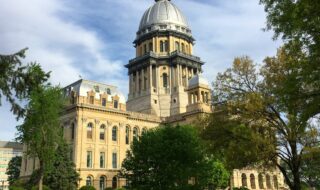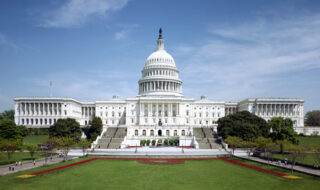March 18, 2021
What Small Businesses Need to Know About the American Rescue Plan Act
The $1.9 trillion American Rescue Plan Act of 2021 (ARPA) was signed into law last week, and it’s as massive as its price tag suggests. While small business recovery was not the primary focus of the legislation, it still extended some of the COVID-19 recovery programs that small businesses are using.
- The Employee Retention Tax Credit (ERTC), which was created in the CARES Act and provides tax relief for employers on employee wages, has been extended from June 2021 to the end of the year. ERTC-eligibility for two additional quarters translates to up to an additional $14,000 in savings per employee.
- Certain startup businesses established after February 15, 2020 are now eligible for up to $50,000 in ERTC tax breaks per quarter.
- Businesses that saw a huge drop in gross receipts (90% or greater) are now eligible for the ERTC regardless of size, and the IRS statute of limitations on assessing the credit was extended.
- The paid leave tax credit created in the Families First Coronavirus Response Act (FFCRA) has also been extended, from March 2021 to the end of September. As of April 1, 2021, employers are eligible for an additional tax credit if they voluntarily provide an additional 10 days of paid sick leave and an additional 10 weeks of paid family leave. The limit on the size of the tax credit has been increased to $12,000. In addition, new qualifying reasons for FFCRA paid leave have been added, mostly related to COVID-19 vaccines: for example, if the employee is awaiting a diagnosis, will be receiving immunization from COVID-19, or is recovering from any complications related to the immunization.
- ARPA also contains $350 billion dollars in funds for state and local governments to cover costs incurred to respond to the COVID-19 public health emergency or its negative economic impacts, including assistance to households, small businesses, and nonprofits, or aid to impacted industries. NFIB is advocating for these funds to be used to prevent increases on the cost of unemployment insurance to ease the tax burden on small businesses.
- The new law also includes targeted relief grants for restaurants, a new Restaurant Revitalization Fund (RRF) Grant program with just over $25 billion in funding.
Minimum Wage and Unemployment Compensation
Fortunately, a federal minimum wage hike, the most anti-small business aspect proposed for ARPA, did not make it into the final version of the law. This was thanks in part to many small business owners who spoke out about the harm and job losses it would cause. The U.S. House version of the bill contained an increase in the federal minimum wage from $7.25 to $15.00, more than double the current wage, but this was removed in the U.S. Senate and an amendment to re-add it was defeated. This amendment was an NFIB Key Vote. While the federal minimum wage increase was not included in the final law, the issue is still alive in Congress.
Another ARPA proposal opposed by many small businesses trying to hire for open positions – an increase to the supplemental federal pandemic unemployment compensation (FPUC) – was also modified. The FPUC is an increase to unemployment benefits provided to former employees and ultimately ARPA lowered the FPUC from $400 a week to $300 a week. This amendment was another NFIB Key Vote for the 117th Congress.
What’s Next?
More big changes are expected in the coming weeks from the new Administration. The U.S. Department of Labor is expected to release Emergency Temporary Standards (ETS) for COVID-19 related enforcement dictating how businesses may operate, with penalties involved for those found in violation.
Meanwhile, the next big federal Congressional legislation is expected to be focused on infrastructure, and significant tax increases on small businesses are expected to be proposed to offset the costs of the upcoming infrastructure package.
NFIB is a member-driven organization advocating on behalf of small and independent businesses nationwide.
Related Articles














